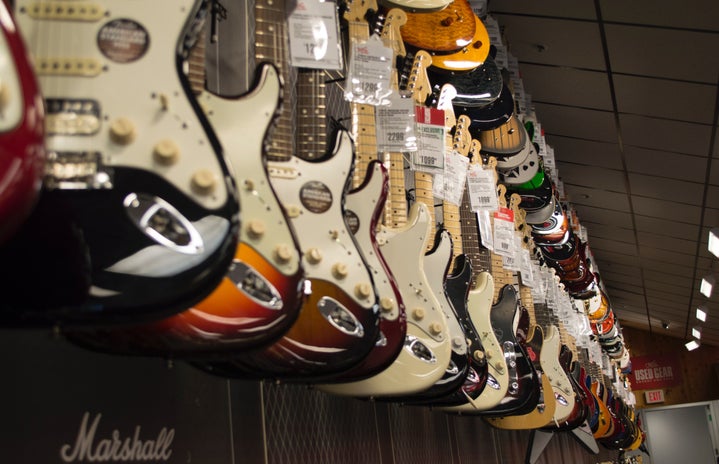The album begins with a short piece contrasting the somewhat staid images of the Founding Fathers found in the paintings of John Trumbull to the down-and-dirty reality of young country. “No John Trumbull (Intro)” sets the tone for the album nicely by declaring the artists’ disinterest in any glossy portrait of America—this is an album, and a country, of immigrants, people who came from poverty, people of every color, and people who’ve had their hearts broken.
“My Shot,” “Wrote My Way Out,” and “Immigrants (We Get the Job Done)” are all group efforts that intertwine rap verses from various artists to great effect. Miranda has spoken of his admiration for rappers like Nas (who appears on “Wrote My Way Out”) and the way they tell the stories and struggles of their communities, so it’s cool to hear him collaborating with his influences. I like the idea of bringing themes from the musical into these songs, as it underscores how time and history aren’t just static. “Immigrants” feels especially relevant and important right now, considering the debate going on about the value of welcoming foreigners to the country.
Another group of songs consists of covers that are almost unchanged. After listening and relistening to the original cast recording, it was fun to hear different voices take on songs. I will say, however, that when I mentioned some “superfluous” songs earlier I was referring to a few in this category. “Wait For It” is such a lovely song, and Usher’s voice here is a dream, but it sounds similar enough to the original that it didn’t thrill me or make me look at the material in a different way. There are also two versions of “Dear Theodosia,” and I wouldn’t say that either is bad exactly, but the second just didn’t seem necessary at all. I do think Kelly Clarkson’s version of “It’s Quiet Uptown” is an absolute gem and makes an already heartbreaking song even more so.
Two songs, “Valley Forge” and “Cabinet Battle 3” are demos by Miranda that didn’t end up in the final musical. I thought both were good additions and I appreciated hearing both of them for different reasons. “Valley Forge” is a case study in Miranda’s editing process—many of the lines were reshuffled into other songs, and others simply wouldn’t move the story forward. It’s a cool song though, because it shows just how desperate the situation was for our founding fathers was.
“Cabinet Battle 3” imagines a debate about slavery between Hamilton and some others. Again, I can see why it was cut—it doesn’t advance the story in the musical and gives Madison a disproportionately big verse. I appreciate the insight Miranda had on Hamilton’s views on slavery, though. The interesting thing about musicals and plays about history is that they have to condense years and years and innumerable important events into about two to three hours. Of course important things are going to be passed over in service of the story, so I like that this song was included.
A few other things: there are two songs, “An Open Letter” and “You’ll Be Back” that provide comedic interludes much like the King George songs in the original. I wouldn’t say Jimmy Fallon is the best singer, but the beginning of his take on the mad monarch made me burst out laughing. Jill Scott sings a song called “Say Yes to This,” which is Maria Reynold’s perspective on “Say No to This” from the original. I liked the way it gave more dimension to a minor but influential character. Finally, I thought “Who Tells Your Story” was a beautiful mix of voices and an excellent modern update of the musical’s last song.
So, was this album successful? Overwhelmingly, yes. Was it necessary? Again, yes. The whole album is a testament to the powerfully creative energy surrounding Hamilton. It’s fascinating to see how different people responded to the ideas Miranda and his team brought to life. It’s true that the tones and sounds of the different songs vary widely, but somehow everything fits together in a cohesive whole. I’m so grateful it exists, and I know I’ll be listening to it on repeat for a while.

